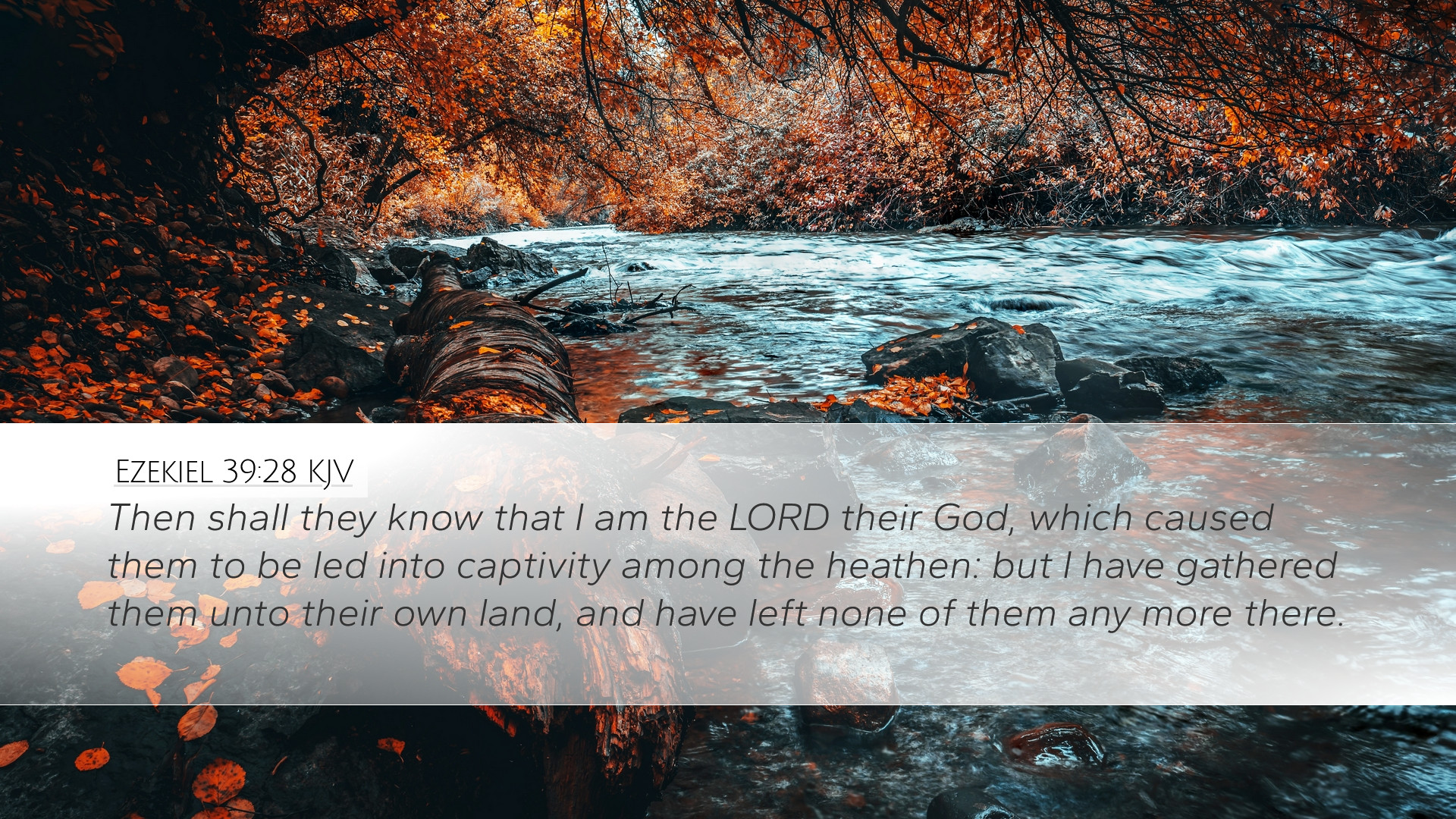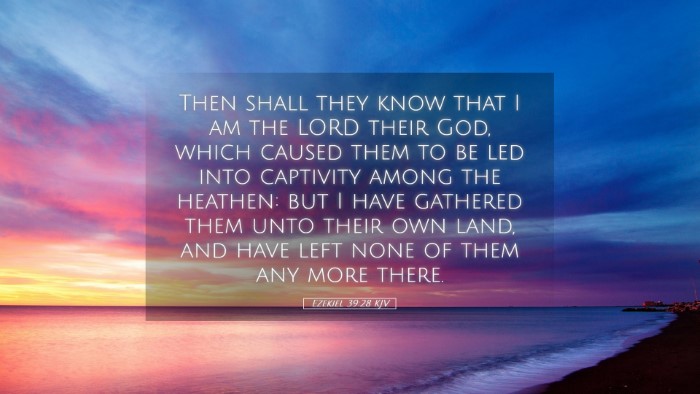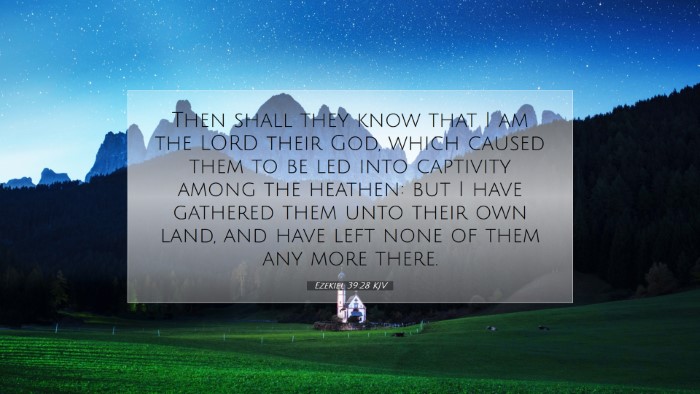Ezekiel 39:28 Commentary
Verse: "Then shall they know that I am the LORD their God, which caused them to be led into captivity among the heathen: but I have gathered them unto their own land, and have left none of them anymore there." (Ezekiel 39:28)
Introduction
The concluding chapters of the book of Ezekiel carry profound theological implications regarding God’s sovereignty, redemption, and the restoration of His people. Ezekiel 39:28 encapsulates the climax of God's promise to Israel, affirming His role in their history and future. This verse bridges the themes of divine judgment and restoration, offering hope to the exiled Israelites and a reminder of God’s unending faithfulness.
Theological Insights
Matthew Henry emphasizes the significance of the acknowledgment of God's sovereignty: "The final restoration of Israel will culminate in a profound recognition of God as the true Lord over His people. This knowledge signifies not merely intellectual acknowledgment but a deep relational understanding." This is vital; the recognition of God's lordship is foundational to true reconciliation and restoration.
Albert Barnes elaborates on the allusions to captivity and return: "The captivity signifies not just a physical barrenness but a spiritual estrangement from God. The regathering of His people is multi-dimensional, addressing both the physical and spiritual aspects of Israel’s identity." His commentary suggests that God’s actions in returning His people to their land are an expression of His covenant fidelity, painting a picture of salvation that extends beyond geography to spiritual wholeness.
Adam Clarke provides additional depth by looking at the "heathen" aspect. He notes that the term represents not just foreign nations but also idolatries that lead God’s people astray. Clarke remarks, "God's gathering is a sovereign act of grace, showcasing His authority over both His people and their oppressors. This gathering signifies the end of their estrangement and the restoration of their status as His chosen ones." He underlines that the act of collecting the exiles points to a future where Israel's identity and mission are clarified amidst their hardships.
Historical Context
- The Exilic Experience: The exiles faced significant trauma, loss, and an identity crisis as they lived in Babylon. Themes of hope for future restoration were crucial during this period.
- Prophetic Literature: Ezekiel’s prophecies were often directed towards encouraging the people that God had a plan beyond their current circumstance, fostering identity through the lens of covenantal promises.
Hermeneutical Reflections
The exegesis of Ezekiel 39:28 invites readers to reflect on the nature of God’s covenant and the implications of His faithfulness. It challenges interpreters to consider how this promise of gathering can be understood in the New Covenant context, where God also promises to gather His people in a spiritual sense.
Pastoral Applications
- Understanding Suffering: Pastors can draw from this verse to help congregants understand their suffering in light of God's sovereignty and eventual restoration.
- Encouragement in Trials: The assurance that God remembers His people and His promises is a source of hope for individuals undergoing hardships.
The Hope of Restoration
This verse ultimately highlights God’s intention to not abandon His people. The assurance that “I have gathered them unto their own land” is a powerful metaphor for spiritual restoration, which can be applied in the context of the church today. The restoration signifies not just a geographical return but a deeper spiritual revival, aligning believers with God’s purposes.
Conclusion
Ezekiel 39:28 is a profound declaration of God’s commitment to His people amidst their struggles and exile. The insights from Matthew Henry, Albert Barnes, and Adam Clarke collectively reinforce the understanding of God’s sovereignty, grace, and faithfulness in heralding the hope of restoration. For pastors, theologians, and scholars, this verse serves as a reminder of God’s covenant promises, affirming that despite circumstances, God’s providential hand guides His people towards healing and reunion.


